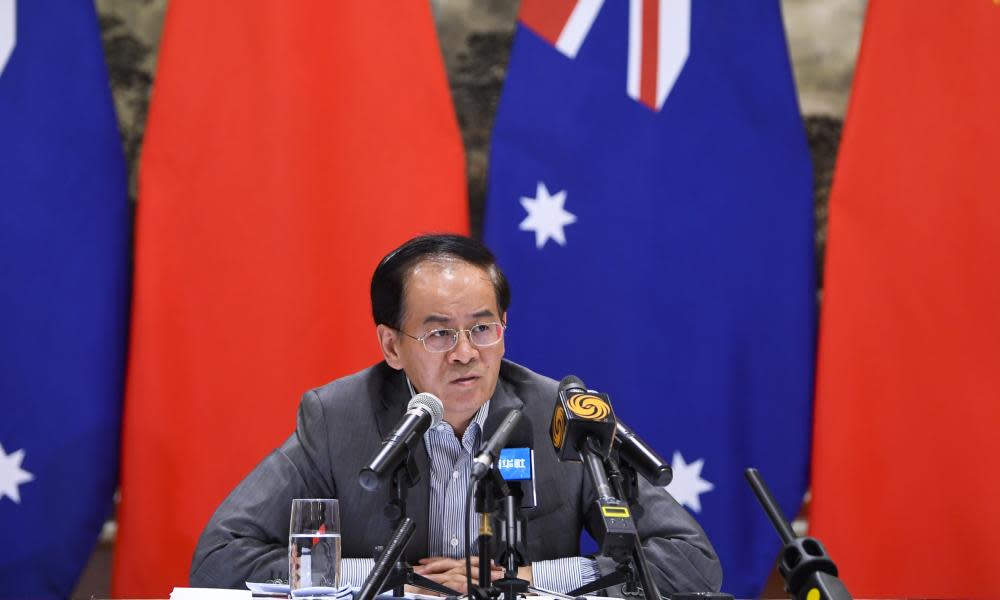China accuses Australia of discriminating against Huawei

The Australian government’s ban on Huawei’s participation in building the nation’s 5G network remains a “sore point or thorny issue” between the two countries, the Chinese ambassador said on Monday, as he criticised the government for discriminating against a Chinese company.
Cheng Jingye dismissed concerns Huawei may pose a threat to Australia’s national security given its links to the communist Chinese government, and said Australia’s ban was “politically motivated”.
“It is, it is,” he told Sky News. “I mean, it is a discrimination against the Chinese company. At the same time it doesn’t serve the best interest of the Australian companies and consumers …
“I mean, as far as I know the Huawei company in Australia, they have, I mean, tried in every means to talk with the Australian authorities to explore what security risks or concerns you have. And also they have pledged, I think publicly, to conclude a no-backdoor agreement.”
Related: UK doing the wrong thing on Huawei, says Australian ex-spy
The Turnbull government blacklisted both Huawei and ZTE from Australia’s 5G network in August 2018 in response to security advice. The United States has also banned Huawei, and warned that European allies who used communications technology provided by it in their networks put intelligence relationships at risk.
Australia has been pulled into the spat. The Sydney Morning Herald reported that the deputy chairman of the parliamentary intelligence committee, Labor MP Anthony Byrne, criticised the visiting UK foreign affairs secretary, Dominic Raab, over Boris Johnson’s decision in January to allow Huawei to build its 5G network.
Johnson’s decision angered five-eyes security allies, including Australia and the US.
The ABC reported the intelligence committee had cancelled a trip to the UK over the dispute, news Josh Frydenberg was forced to downplay at the weekend as he claimed bilateral relations with the UK were strong.
But Raab’s conversations with the Australian MPs being leaked has drawn censure from the UK. The country’s high commissioner wrote to the heads of each committee expressing displeasure details of the talks found their way into the media.
Cheng told Sky News he believed the UK government had made a “sensible” decision to not kowtow to “external pressure” from critical nations.
Cheng also repeated denials China had been behind recent cyber attacks on Australian networks, saying the allegations had “never been substantiated with evidence”.
“If it’s happened in a certain country, it does mean that is done by ‘this’ country,” he said.
“But it might be done by a third country or persons, and China is also a victim of cyber attacks.
“We have we have suffered a lot of attacks from different parts of the world. So the cyber security is an international challenge, which we need to work together instead of making unfounded allegations.”


